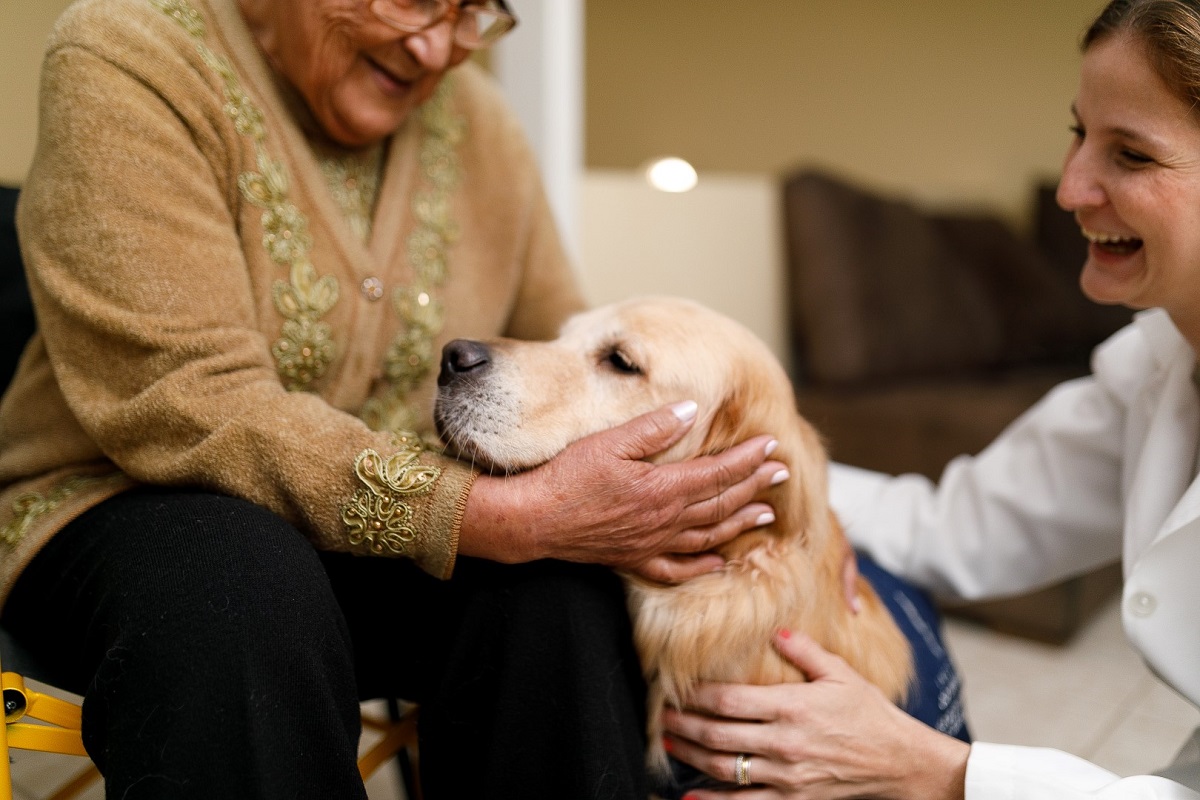Despite 86 per cent of older adults experiencing improved mental and physical health with pets in aged care settings, alarmingly only 18 per cent of aged care facilities will consider allowing residents to keep a companion animal.
These figures are according to a report from national animal welfare charity, Companion Animal Network Australia’s (CANA) 2023 Aged Care Survey: Status of Pets in Aged Care.
According to the survey, 60 per cent of people say the main barrier to pet ownership is a lack of education among aged care providers on the benefits of pet ownership and a lack of funding to facilitate design changes to accommodate pets being a major challenge.
“The inclusion of pets is a great business model as aged care facilities and home care companies that include pets are in greater need and their clients and communities are happier and healthier.”
CANA works closely with the residential facilities that allow clients to bring their pets with them and offers free resources, including pet related policies, guidelines, and documents, for aged care providers, support agencies and organisations to manage and care for pets in aged care settings.
Trish Ennis, CEO of CANA, says that while we’ve always recognised the benefits of owning a pet, the survey shows the Australian government and aged care providers have been slow to understand the enduring value of the human-animal bond for older people.
“There’s often a catastrophic emotional harm caused when older people are forced to give up their pets upon moving into an aged care home, and resulting in their much-loved animals being surrendered to shelters across the country,” says Ennis.
The survey also found that when it comes to older adults living at home, 91 per cent of those with pets who receive a government funded Home Care Package (HCP) don’t receive any support for the care of their companion animal.
The survey revealed that 61 per cent of older adults live alone, and 74 per cent of older adults with pets say their animals provide companionship and reduce loneliness.
While 40 per cent of older adults who receive a HCP have pets, only nine per cent of these pet owners receive pet care support, such as walking their dog (64 per cent need help) and taking their pet to the vet (62 per cent need help).
Ennis continued: “The health and wellbeing benefits of pet ownership are measurable and indisputable. The CHSP (Commonwealth Home Support Programme) and HCP can be extended to determine and secure the necessary assistance for a person to live independently with their pet by ensuring services are offered to support pet health and wellbeing.
“Increasing the number of pet-friendly in-home aged care support will also help to prevent animals from being euthanised or surrendered to shelters and maximise the physical and emotional health of animal loving older people.”
To stay up to date on the latest industry headlines, sign up to the Pet Industry News e-newsletter.

